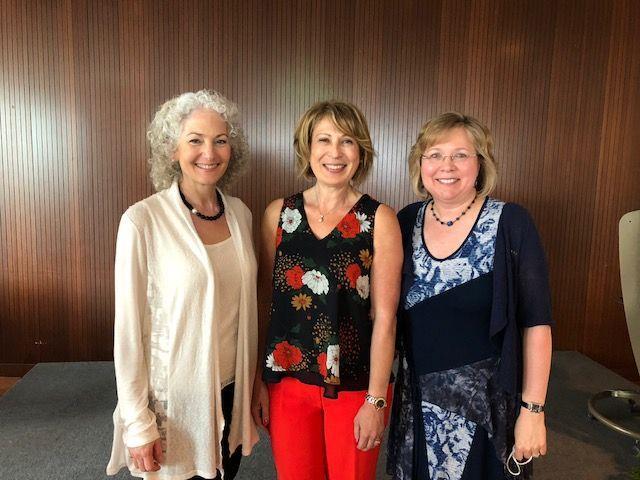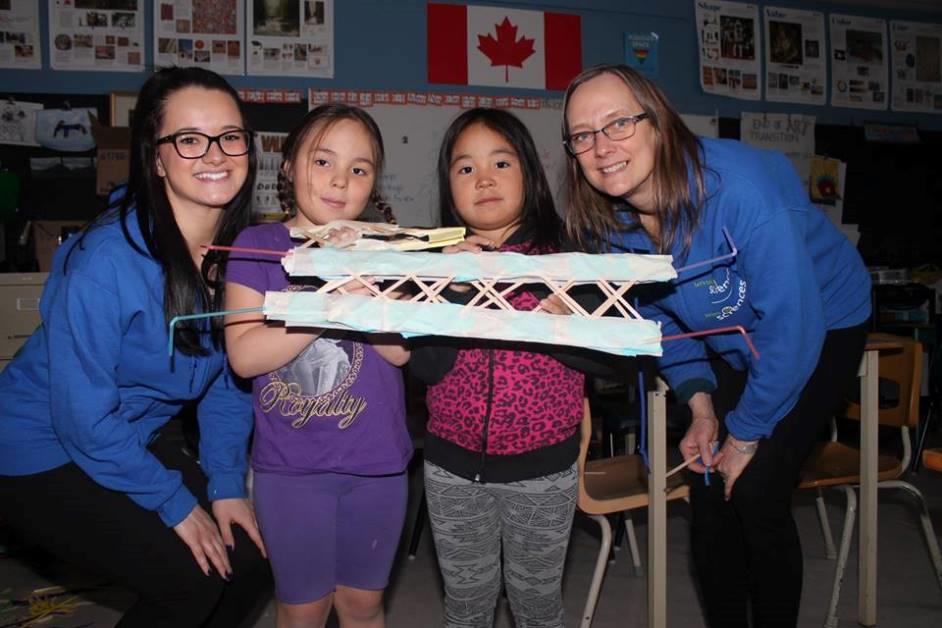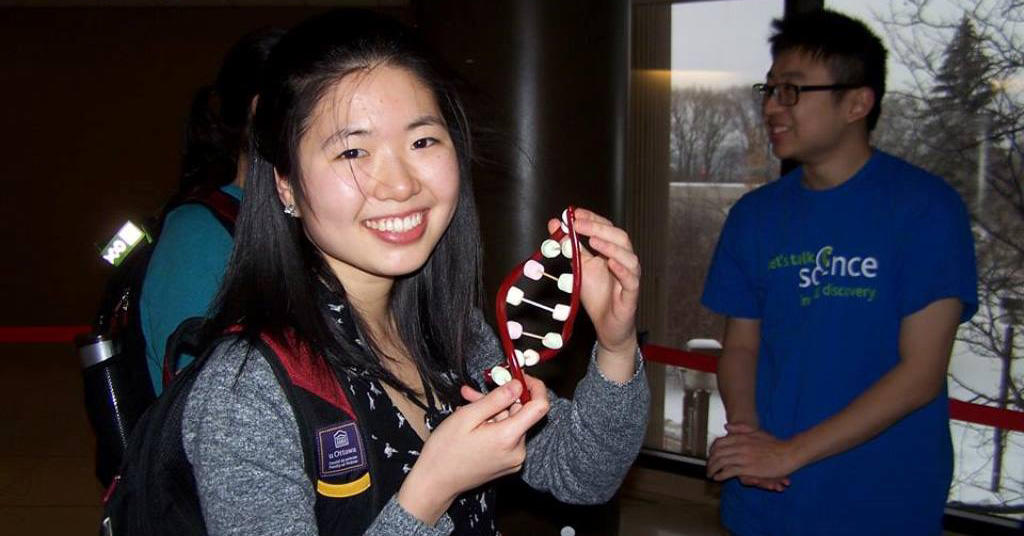

By Linda Scales
For 25 years, uOttawa students have been expanding their communication and teaching skills in science, technology, engineering and mathematics (STEM) thanks to Dr. Barbara Vanderhyden, a senior scientist in the Faculty of Medicine. In 1993, she launched the Ottawa branch of Let’s Talk Science, a national, volunteer-driven program that offers hands-on, interactive and in-person learning experiences in both school and community settings. Vanderhyden’s efforts were instrumental in helping Let’s Talk Science become a national organization.
On the heels of an anniversary celebration, three uOttawa student-volunteers tell us what they think about the program and share some of their unique experiences.
Win-win for volunteers
Alanna Jane
Program: Honours Bachelor of Health Science
Graduating: 2019
LTS volunteer since 2016
About Let’s Talk Science
Science education provided by LTS can have a huge impact on children and youth by allowing them to explore science outside of a textbook and apply it to the real world. It’s also a win-win situation for the volunteers since they get a chance to improve their communication skills.
My LTS experience
I was in Grade 8, in 2011, and participating in the annual Let’s Talk Science Challenge. It’s a science-based trivia and design competition for teams of four students from Ottawa-area schools, who were competing against each other for prizes. My team won the challenge, which was exciting in itself. However, the highlight for me was meeting the volunteers organizing the event, learning why they study science and what real-world opportunities existed for science majors. I credit this event for my decision to study science in university.
LTS engages all audiences
Renée Nelson
Program: Masters of Science in Neuroscience
Graduated: 2018
LTS volunteer since 2014 and LTS Indigenous Outreach co-ordinator since 2016
About Let’s Talk Science
One of the best things is [LTS’s] ability to be inclusive. The hands-on workshops are designed to engage all audiences and make learning science fun for everyone. I’ve run workshops in local classrooms, remote Indigenous communities, special needs camps, for students with learning disabilities and with youth undergoing mental health treatment. With our activities, everyone has a great time learning about science. This is important because education should be accessible to everyone.
My LTS experience
A group of Grade 3 girls told me I didn’t look like a “normal” scientist. However, after chatting with them I realized they had never met an actual scientist before. They had never even seen a female scientist. All of their ideas were formed from watching television! This blew me away because I’ve always been surrounded by incredible female scientists and did my undergraduate and master’s thesis research in a predominately female laboratory. So the next time I visited their classroom, I did a quick presentation on “real life” scientists to help reshape the image of a scientist and open up these young students’ minds to all of the different types of science and scientists that exist.
Mobilizes STEM students
Curtis McCloskey
Program: PhD in cellular and molecular medicine
Graduating: 2018
LTS volunteer since 2009
About Let’s Talk Science
LTS is important for mobilizing post-secondary STEM students to use their education not only to stir up interest in STEM careers, but also to help improve scientific inquiry and literacy in Canada.
My unique LTS experience
I got to witness innovative teaching methods that bring together students from remote Northern communities to learn. Once, I facilitated an activity on designing vaccines that required four groups for a Grade 12 science class in Inuvik, but there were only three students in the class. The teacher turned on a TV screen and suddenly, four other classrooms appeared, each with two to four students from other remote communities: Paulatuk, Ulukhuktok, Fort McPherson and Tuktoyaktuk. I suddenly had the groups I needed to do the activity and got to connect with students across the Arctic.
5 things about Let’s Talk Science
1. In Ottawa, the LTS office is located in Tabaret Hall at the University of Ottawa. Student-volunteers are from both uOttawa and Carleton University.
2. LTS volunteers visit classrooms and community groups free of charge. They give hands-on science workshops, judge science fairs and more.
3. Science Travels is an Ottawa LTS sister program that sends volunteers to Canada’s northern communities to teach science.
4. The Ottawa LTS program boasts 325 volunteers and in 2017-2018, it facilitated more than 972 hands-on activities with more than 35,000 children and youth.
5. LTS student-volunteers are role models for many young Canadians. Want to share your knowledge and inspire some kids? There are a number of ways.
